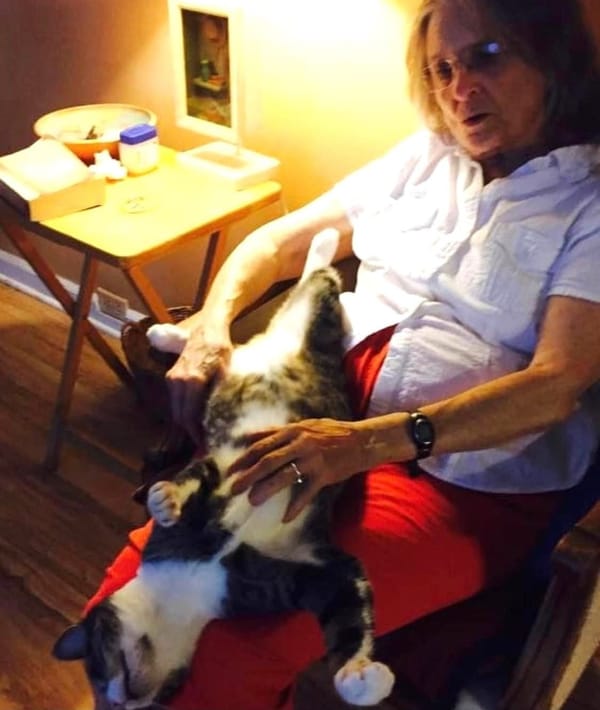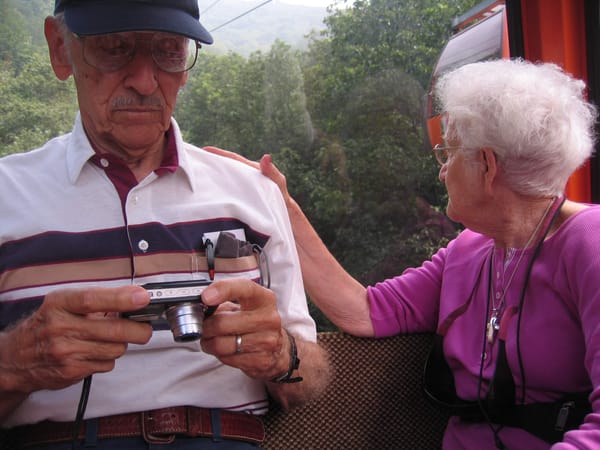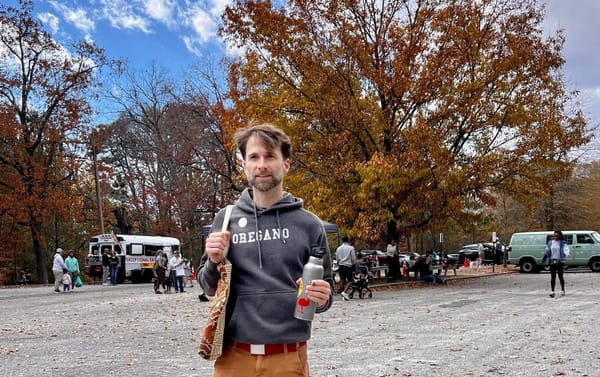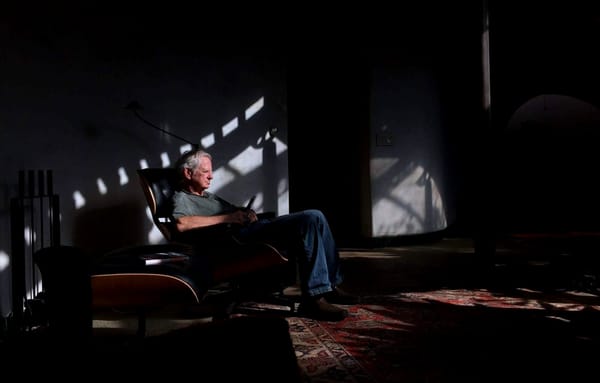Encounter with an Ancestor: Florence
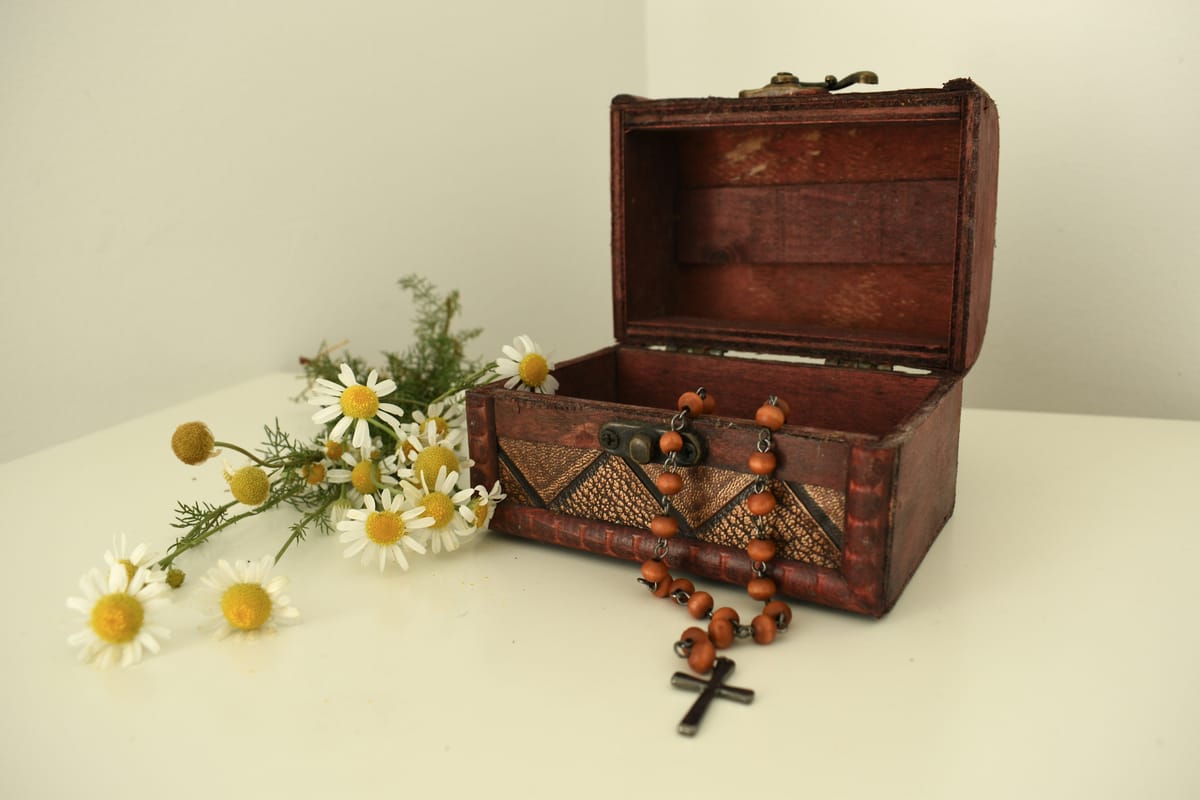
During my first year at Stanford, I didn’t know what to study, so I took some pre-med courses, just in case doctoring might be in my future – I’d been told that it would be easier to take these courses sooner rather than later – and I asked people about their most beloved classes. I then tried to take those classes.
One class kept coming up, with the most effusive recommendations: “Death and Dying,” in the Human Biology Department. The professor was on sabbatical, so I took a related course, led by a student who had taken the class. It featured some of the same readings, and students in the class were guided through the process of becoming a hospice volunteer.
We met in a classroom in the Medical School, and on the first day, the faculty sponsor asked each student to describe our preferred way to die. Some folks wanted to die in their sleep. For most of us, this was the first time we'd ever considered the question. I described a heroic death, saving people from a mass shooter or something, and the professor simply nodded and said how this is one of the categories that comes up, when the question is asked.
This student-led class opened my eyes to our society’s longstanding need to revise our approach to death, and to talk about things that most people don't tend to talk about.
And I did become a hospice volunteer, about two years after the class concluded, alongside a thousand other commitments I took on as a student who didn’t know what to do. My role as volunteer was to sit with a patient and offer her some company, nothing medical. I had one patient during my months of volunteering, I’ll call her Florence.
I biked the mile from campus to downtown Palo Alto and took the stairs to an upper floor of the long-term care facility where she lived. She was thin, with thin white hair, frail but still able to engage, and she surprised me with how stable her health condition was. In training, I’d been warned that I might only visit a given patient once or twice before they died, due to many folks' short tenure in hospice, but Florence remained stable.
One time I brought a novel with me, thinking I might read aloud a book that was also on my list: John Steinbeck’s Cannery Row. I’d chosen it because of Steinbeck's reputation as an outstanding author, and he also went to Stanford. The book seemed like an approachable length, like maybe I’d be able to read the whole thing aloud, over the course of our visits, and I liked how it felt in my hand.
After settling into a visit, I introduced the idea of the book, and Florence was game. The story starts pleasantly enough, introducing the characters and place, then in the first few pages, it takes an abrupt turn when a character shoots himself, then the narrator goes on to talk about the embalming and the funeral and “man’s right to kill himself.”
I had tried to skip over the jolt of the death, which occurred in just a fraction of a sentence, but I struggled through that next paragraph, having never read the story myself. Florence turned her head side-to-side and asked me to stop. No more reading. This was a fail.
Another of my visits coincided with a visit from her son, a man in his fifties who, after introducing himself, pulled a cross necklace out of his shirt and held his head in very close to his mother’s, holding her hands around the little cross at the end of his necklace. He asked if she wanted to recite the Lord’s Prayer together.
“She likes when we do this,” he said, weaving me into the fabric of their connection, then I quietly mouthed the familiar words along with them, “Our Father, who art in heaven, hallowed be thy name…”
Florence’s voice was weaker than her son’s, “Thy kingdom come, thy will be done on earth as it is in heaven…”
The energy in the room shifted, not a 180 degree shift, more like 10 or 12 degrees, but it was palpable. I felt it in my chest.
“...Give us this day our daily bread, and forgive us our trespasses, as we forgive those who trespass against us.”
At that point in my faith, I had no idea what I believed. I’d become allergic to anything connected to the Bible, which definitely included the Lord's Prayer, so this was a stretch, but I had never stopped believing in prayer.
“Lead us not into temptation, but deliver us from evil.”
Knowing the prayer would end soon, I relaxed into the moment.
“For thine is the kingdom and the power and the glory forever, amen.”
We breathed a little deeper while he tucked his cross necklace back into his shirt, and I nodded to myself and said again, "amen." The son made his goodbyes and then made his way out of the room. His visit lasted less than ten minutes.
Months later, while I was on a leave of absence from school, I heard from the folks at the hospice that Florence had died. When I came back to school, I had plenty of other things going on, and it made sense to set hospice aside for a while, tucking it into memory.
